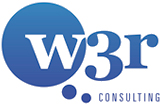These days, who hasn’t dabbled in AI? From writing rudimentary code to drafting emails and sending out customer service responses, generative AI has crept into diverse corners of the social, political, and business world. Yet there’s a growing number of use cases.
Companies across industries, from financial services and insurance to healthcare and beyond, have begun to implement AI in their daily operations. However, despite the many potential benefits artificial intelligence can provide, the technology is not without its risks.
Adopting and implementing AI will have financial and workforce implications, as well as larger legal and ethical impacts. Without the proper guardrails, there is a potential for businesses to make the wrong decisions, open themselves up to litigation, or preemptively automate processes that should stay in the hands of people. Here’s what you need to know to enable effective and secure AI for your organization.
Ensure Data Accuracy and Accountability
Artificial intelligence solutions and machine learning models are only as good as the data they rely on. That’s why, before implementing any new AI tool, ensure your data is clean. The algorithms at the heart of this technology are unable to recognize when data is incorrect, corrupt, duplicated, or incomplete. They rely on your business for data quality and data governance framework.
Creating an internal, organization-wide group tasked with validating data sources or collaborating with trusted data governance consulting services can build the right foundation for accurate AI outcomes. Ultimately, your artificial intelligence strategy that enables consistent, systematic, and comprehensive data for AI models to use will better meet business needs in the long run.
Beyond consistent and accurate data, you’ll also need to consider accountability. Who is going to own and oversee the AI and its outputs?
As we have seen recently, things can go very wrong when AI is not properly managed. Generative AI tools like Google’s Bard and OpenAI’s ChatGPT have both been shown to have ‘hallucinations’ where they overstate information or make up facts entirely. These demonstrate the very real risks if AI is not supervised.
A recent KPMG U.S. survey found that, of the 225 U.S. executives surveyed, 65% believe that generative AI will have a high or extremely high impact on their organization over the next 3 to 5 years, far above other emerging technologies. At the same time, 68% of those respondents said they had not appointed a central person or team to organize their AI efforts, with many leaving AI in the hands of the IT team for now. Additionally, only 6% reported having a dedicated team in place to evaluate risk and implement risk mitigation strategies.
While AI offers businesses new opportunities for growth, improved efficiency, and innovation, in the longer term, failing to implement responsible strategies for managing and maintaining AI could make it difficult to get the most out of this growing technology.
Prepare Your Workforce
Artificial intelligence does not operate (yet anyway) without human input. As your organization considers how it might adopt new AI tools, it’s important to assess your workforce and determine if your team has the skills and capabilities necessary. While AI has many potential benefits, in the wrong hands it can be destructive.
Even major tech companies are not immune from the risks. Take the example of Microsoft’s AI team which accidentally leaked terabytes of company data on the developer site GitHub. The mishap was caused by human error, namely a misconfigured URL, that could have been easily avoided with more caution.
Researchers at Microsoft had attempted to publish open-source training materials and AI models for image recognition. Instead, a miswritten SAS token granted GitHub users access to the entire storage account, including sensitive personal data and company secrets that made Microsoft’s AI systems vulnerable to attack. This example and others proved that simply handling the massive amounts of data needed to train AI can be risky, especially when companies rush to market.
As AI’s business applications continue to grow, business leaders must invest the time necessary to understand AI and ensure their teams do the same. For some, this may mean upskilling their workforce or providing training to help people better understand and utilize AI in the workplace.
Take AI prompt engineering, an emerging field that teaches people how to optimize text inputs to effectively communicate with AI and get the best results. For many workers, asking AI the right questions is not instinctual. Providing these skills and knowledge in advance of any AI implementation can help ease human concerns with how the new technologies operate and encourage worker experimentation and innovation.
We’re heading into a new workforce era where humans and generative AI will work side by side. Ensuring your team is ready for this future by proactively building capacity and increasing understanding of AI will decrease worker concerns and lay the foundation for success.
Keep Security Top of Mind
As we have seen, artificial intelligence can be a huge asset for your business, leading to increased productivity and growth. But it can also be a critical point of weakness. Like many technologies, AI has been the target of increasingly sophisticated cyberattacks. A business reliant on AI systems for example might be attacked by a cybercriminal capable of restricting these systems and exploiting them for access to sensitive information.
Attackers have also begun to exploit the technology for their own purposes, adopting AI techniques to evade detection and cause greater damage. Research has found that more than 50% of AI-driven attacks were focused on accessing and penetrating systems, and existing cybersecurity infrastructures were unable to address the increased speed and complexity of these attacks. Generative AI like ChatGPT also makes it relatively easy for hackers to develop malicious code that can make their attacks more effective.
As a result, it’s important to identify any cybersecurity gaps inviting attacks to help reduce the risks of artificial intelligence. This begins with limiting internal risks by adopting a framework to authenticate and validate user identity. Comprehensive training will also be needed to help people recognize potential threats, avoid increasingly sophisticated scams, and respond quickly when attacks do happen.
When built and managed properly, AI can be a game-changing technology that gives your business a competitive edge. But only with full accountability, data accuracy, and comprehensive security can your business mitigate the risk of artificial intelligence and enable effective and secure AI for your organization.
Are you looking to avoid the risks of artificial intelligence in business? w3r Consulting offers data enablement solutions to mitigate your AI risk and elevate your performance.
We can help maximize your data
Related Articles
The Most Valuable Applications of Banking AI in 2023
Why AI Won’t Replace Your Need for Skilled Staffing and Recruiting Partners
Want to Unlock Artificial Intelligence? See If You Have the Right Foundation First


